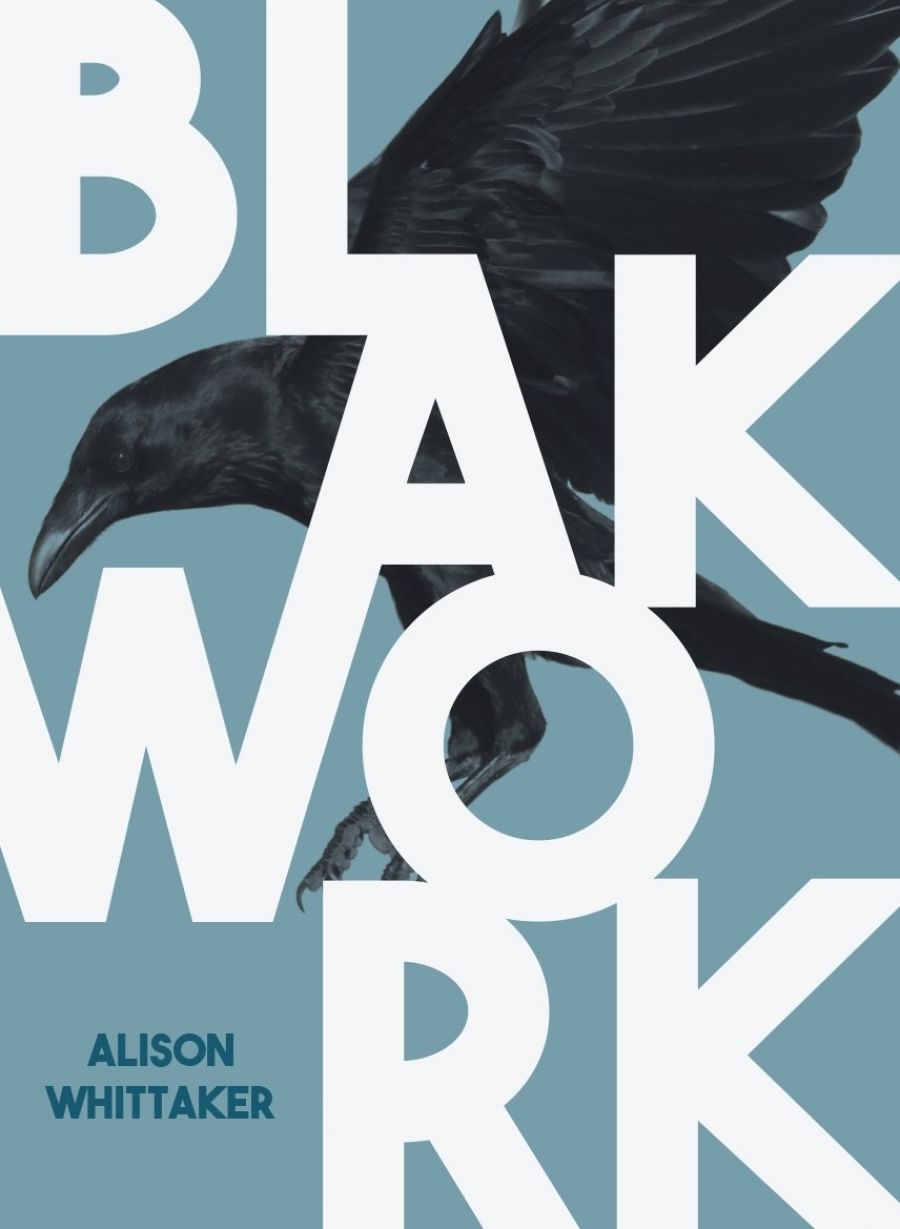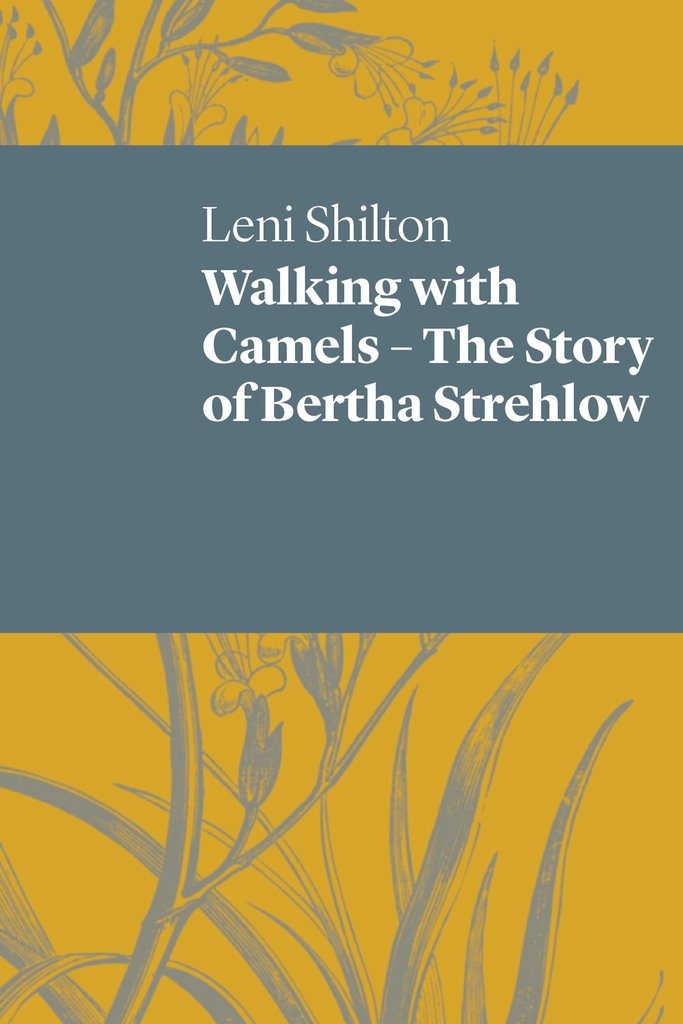
- Free Article: No
- Contents Category: Poetry
- Custom Article Title: Jen Webb reviews <em>Blakwork</em> by Alison Whittaker and <em>Walking with Camels: The story of Bertha Strehlow</em> by Leni Shilton
- Review Article: Yes
- Online Only: No
- Custom Highlight Text:
Alison Whittaker’s début collection, Lemons in the Chicken Wire (2015), introduced a genuinely new voice to Australian poetry: that of a Gomeroi woman, a Fulbright scholar, and a poet who can bend and blend forms with the best of them. Her second collection of poems, Blakwork, places her firmly in both the ...
- Book 1 Title: Blakwork
- Book 1 Biblio: Magabala Books, $24.99 pb, 179 pp, 9781925360851
- Book 2 Title: Walking with Camels: The story of Bertha Strehlow
- Book 2 Biblio: UWA Publishing, $22.99 pb, 150 pp, 9781742589701
- Book 2 Cover Small (400 x 600):

- Book 2 Cover (800 x 1200):

- Book 2 Cover Path (no longer required): images/ABR_Arts_2019/April_2019/Walking_with_Camels.jpeg
 Alison Whittaker (photograph via Twitter)
Alison Whittaker (photograph via Twitter)
This is a political book, one that extends and enhances poetic diction in Australia, but it is never didactic. Full of image, pulsing rhythm, and (sometimes) rhyme, it rollicks along, critiquing, teasing, reflecting, calling its readers in. It never takes its eye off the history of post-invasion Australia and what this means for Aboriginal people, of how law fails to function appropriately when its subject is black, and of the mismatch between white and Aboriginal ways of being and living in this country. Yet there is no sentimentality, no mere complaint: rather, it is a nuanced, critical, felt, and poetic account of being, and of Australia, with all its complexities and its passions.
While it is probably fair to say that all poetry is, strictly speaking, a type of nonfiction, biographical poetry has particular features not shared by other poetic genres. The scholarly literature suggests that, as biography, poetry has uncertain value, but nonetheless poets do write in this form. From the story of the king Gilgamesh (c.2100 bce), right through the millennia and across all major cultures, verse biographies appear. Leni Shilton’s new work adds to that vast body of literature the story of Bertha Strehlow, a woman who exists in history primarily in her husband’s shadow, her contributions to his work barely acknowledged.
Walking with Camels is the product of Shilton’s doctorate, ‘Giving Voice to Silence’ (2016), in which she calls the work both a ‘verse novel’ and a ‘biography in poetry’. This double identity is perfectly reasonable: it is, after all, a collection of individual poems that stand as poems in their own right, but together form a narrative arc; and, as the endnotes show, they are deeply embedded in, and emerge from, the archival documents held in the Strehlow Research Centre in Alice Springs.
Shilton effectively straddles the different demands of poetry, history, life writing, and an imaginative embodying of that life and the country in which it was lived – no easy task given that each mode comes with different demands and trajectories. The balance is achieved in part by the substantial endmatter: a timeline of Bertha’s life, a contextualising note for each poem, and a bibliography.
The poems are organised chronologically, from Bertha’s first meeting with her husband Ted, to the moment of her death, and vary from monologue to imagistic lyric to a kind of reportage. The poem ‘Alice Springs’, for example, is quite prosaic, and seems to be there largely to locate the Strehlows and move the story along to the next stage of their lives – Hermannsburg and then into the desert, which inspires some of the more lyrical and imagistic poems in the collection. See ‘Rain’, for instance:
The day darkens, turns to rain.
We walk in fine mist,
the sand deepened to blood red,
until we are wet through.
These lines take on the quality of a haiku: close attention to the natural world and the human experience of momentary transformation, along with the magic of light, texture, and colour in a land that exists independent of human presence.
Bertha, who exists in the historical record principally as Ted Strehlow’s wife, is here a vibrant, sympathetic, and entirely believable presence. Ted comes to us primarily through Bertha’s account, which is loving but not really admiring: someone whose moods need to be managed (in ‘Camel Memories’, for example: ‘when Ted grew stern, / serious, / even hateful, / I’d remind him of our desert time / … and slowly / they would bring him round’).
The book is Bertha’s: her story, her perspectives, her deep respect for land and its traditional owners; and her growing attachment to her children rather than her husband. The voice is disarmingly simple, but Bertha’s curiosity, along with her openness to adventure, compassion, and resilience, ‘gives voice to silence’.


Comments powered by CComment